Are you ready to embark on an epic hydroponic journey with your cannabis plants?
Picture this: you, the fearless hydroponic gardener, armed with your trusty nutrient solutions, guiding your plants towards glorious growth and bountiful buds.
Hydroponics, the art of growing plants without soil, is not only a fascinating way to cultivate cannabis, but it also offers a plethora of benefits. From faster growth rates to increased yields, hydroponics is the way to go for the ambitious cannabis enthusiast.
But here’s the thing, my friend: not all nutrients are created equal. Just like you wouldn’t settle for a subpar pizza when you’re craving a slice of heaven, your cannabis plants deserve only the best nutrients to reach their full potential.
In this article, we’ll dive deep into the world of hydroponic cannabis cultivation and explore the essential nutrients your plants crave. We’ll also uncover the secrets of customizing nutrient solutions to create the perfect recipe for optimal growth.
So grab your lab coat, put on your thinking cap, and let’s embark on this nutrient-packed adventure together!
Understanding Hydroponics and Its Benefits
Now that you’re familiar with the basics of hydroponics, let’s dive into the numerous benefits it can bring to growing cannabis.
Hydroponics, my friend, is like the James Bond of gardening. It’s all about growing plants without soil, using water and nutrient solutions instead. And let me tell you, it’s a game-changer for cultivating that sweet, sweet cannabis.
First of all, hydroponics allows you to have complete control over your growing environment. You become the mastermind behind the scenes, manipulating every aspect to create the perfect conditions for your plants. It’s like playing god, but with plants.
You can adjust the pH levels, nutrient concentrations, and even the temperature and humidity. You have the power to create the ultimate paradise for your cannabis babies.
But wait, there’s more! Hydroponics also gives you the ability to grow your plants faster and bigger than ever before. It’s like giving your cannabis a dose of steroids (but legal, of course). Because plants don’t have to waste energy searching for nutrients in the soil, they can focus all their energy on growing big, luscious buds. It’s like they’re on a never-ending growth spurt, and you get to reap the rewards.
So my friend, if you want to take your cannabis cultivation to the next level, hydroponics is the way to go. It’s like having your own secret agent working tirelessly to ensure your plants thrive.
Just sit back, relax, and watch your cannabis kingdom flourish.
Essential Nutrients for Healthy Cannabis Plants
To ensure the health of your cannabis plants, it’s crucial to provide them with the necessary nutrients. Just like humans need a balanced diet to thrive, your plants need a variety of nutrients to grow strong and healthy.
Here are the essential nutrients your cannabis plants need:
- Nitrogen: Think of nitrogen as the protein for your plants. It helps with leaf and stem growth and gives your plants that vibrant green color. Without enough nitrogen, your plants may become pale and weak, like a bodybuilder skipping leg day.
- Phosphorus: Phosphorus is like the energy drink for your plants. It helps with root development and flower production. Without enough phosphorus, your plants may grow sluggish and lackluster, like a couch potato who’s had one too many late-night snacks.
- Potassium: Potassium is the muscle builder for your plants. It helps with overall plant health and disease resistance. Without enough potassium, your plants may become weak and susceptible to pests and diseases, like a bodybuilder skipping arm day and getting sick from a simple cold.
- Calcium: Calcium is like the building blocks for your plants. It helps with cell structure and nutrient absorption. Without enough calcium, your plants may have stunted growth and nutrient deficiencies, like a construction worker trying to build a skyscraper with a bunch of mismatched Legos.
So remember, providing your cannabis plants with the right nutrients is essential for their health and growth. Give them a well-balanced diet, and you’ll be rewarded with strong, vibrant, and happy plants.
Happy growing, my friend!
Customizing Nutrient Solutions for Optimal Growth
Customizing your nutrient solutions is essential for achieving optimal growth in your hydroponic setup. While there are general guidelines for the essential nutrients that cannabis plants need, each strain and each grower’s setup is unique. By customizing your nutrient solutions, you can tailor them to meet the specific needs of your plants, ensuring they get the right balance of nutrients for healthy growth and abundant yields.
To help you get started, here’s a table with three columns and five rows, showcasing some common nutrient solutions and their benefits:
| Nutrient Solution | Benefits |
|---|---|
| Fish Emulsion | Provides organic matter and essential nutrients for overall plant health |
| Epsom Salt | Supplies magnesium and sulfur, which are vital for chlorophyll production |
| Kelp Extract | Enhances root development and improves nutrient uptake |
| Bat Guano | Boosts phosphorus levels for flowering and fruiting |
| Calcium Nitrate | Prevents nutrient deficiencies and supports proper cell structure |
Feel free to mix and match these nutrient solutions based on your plants’ specific needs and growth stage. And remember, while it’s important to customize your nutrient solutions, it’s also crucial to monitor your plants closely and make adjustments as needed. Happy growing!
Monitoring and Adjusting Nutrient Levels
Monitoring and adjusting nutrient levels is essential in ensuring optimal growth and development of your hydroponically grown cannabis. Just like how you need to monitor your own nutrient levels (hello, pizza, and ice cream), your plants also need their nutrient levels checked regularly.
Think of it like giving your plants a check-up at the doctor’s office, but instead of a stethoscope, you’re using a pH meter and an EC meter. These tools help you measure the acidity and electrical conductivity of the nutrient solution, giving you valuable information about the health of your plants.
Now, don’t worry, this doesn’t mean you have to become a plant doctor overnight. It’s actually quite simple once you get the hang of it. Just like how you adjust the temperature in your home when it gets too hot or too cold, you can also adjust the nutrient levels in your hydroponic system.
If the pH is too high or too low, you can add pH up or pH down solutions to bring it back into the ideal range. If the EC is too high or too low, you can adjust the nutrient concentration by diluting or adding more nutrients to the solution. It’s all about finding that sweet spot for your plants, where they have just the right amount of nutrients to thrive and grow into beautiful, healthy cannabis plants.
So keep an eye on those nutrient levels, and your plants will reward you with some seriously dank buds.
Troubleshooting Nutrient Deficiencies and Imbalances
Identifying and addressing nutrient deficiencies and imbalances is crucial for maximizing the growth and yield of your hydroponic plants. It’s like playing detective with your plants, trying to figure out what they’re missing or what’s throwing them off balance.
But don’t worry, you don’t need a magnifying glass and a Sherlock Holmes hat for this investigation. Just keep an eye out for some common signs and symptoms.
One of the most common nutrient deficiencies in hydroponic cannabis is nitrogen deficiency. This is when your plants start looking a bit pale and yellowish, like they’ve been binging on too many bananas. It’s like they’re saying, “Hey, I need my protein fix!” So make sure to give them a nitrogen boost with a nutrient solution that has a higher nitrogen content.
Another nutrient that can cause trouble is phosphorus. If your plants are feeling a bit sluggish and not flowering as much as they should, it’s probably because they need some more phosphorus in their lives. It’s like they’re saying, “Come on, give us some energy!” So show them some love and add a phosphorus-rich nutrient solution to their diet.
Happy growing, and may your hydroponic garden be full of healthy and happy cannabis plants!
Frequently Asked Questions
How often should I change the nutrient solution in my hydroponic system?
You should change the nutrient solution in your hydroponic system every 1-2 weeks. Think of it like swapping out your car’s oil, except instead of a car, it’s your high-flying cannabis plants!
Can I use tap water for my hydroponic system or do I need to use filtered water?
Sure you can use tap water for your hydroponic system, but be aware of the allegorical dangers lurking in its depths. Filtered water, on the other hand, is like a knight in shining armor, protecting your precious cannabis from impurities. Choose wisely!
Are there any natural alternatives to chemical-based nutrients that I can use for hydroponic cannabis?
Sure, dude! You can totally ditch the chemicals and go all-natural with your hydroponic cannabis. Think compost tea, worm castings, seaweed extracts, and even banana peels for a potassium boost. Mother Nature’s got your back!
What is the ideal pH range for the nutrient solution in a hydroponic cannabis system?
For the ideal pH range in your hydroponic cannabis system, think of Goldilocks – not too high, not too low, but just right! Aim for a pH of 5.5 to 6.5 to keep your plants happy and thriving.
Is it necessary to use supplemental additives or enhancers in addition to the essential nutrients for hydroponic cannabis?
No, you don’t need to go crazy with all those fancy supplemental additives and enhancers for your hydroponic cannabis. Stick to the essential nutrients, and your plants will be as happy as a stoner at a snack buffet.
Hi there! I’m Ayesha, a writer who loves creating stories that connect with people. I enjoy learning about health and wellness and sharing what I find on my blogs at Leafy Mate. My blogs are like taking a trip through the newest discoveries and timeless wisdom about staying healthy and feeling good. Join me on this adventure, where I explore and share simple ways to live a better, more nourishing life.

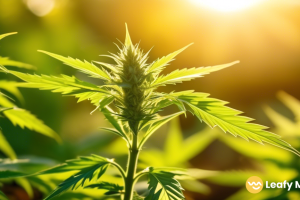
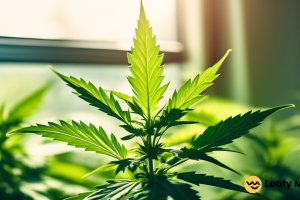
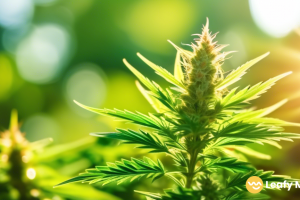




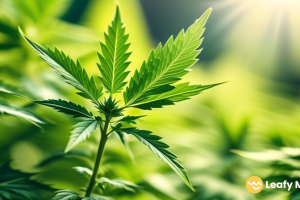

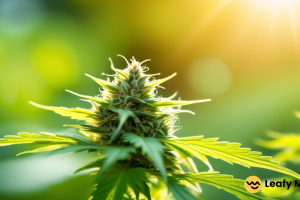
Leave a Reply